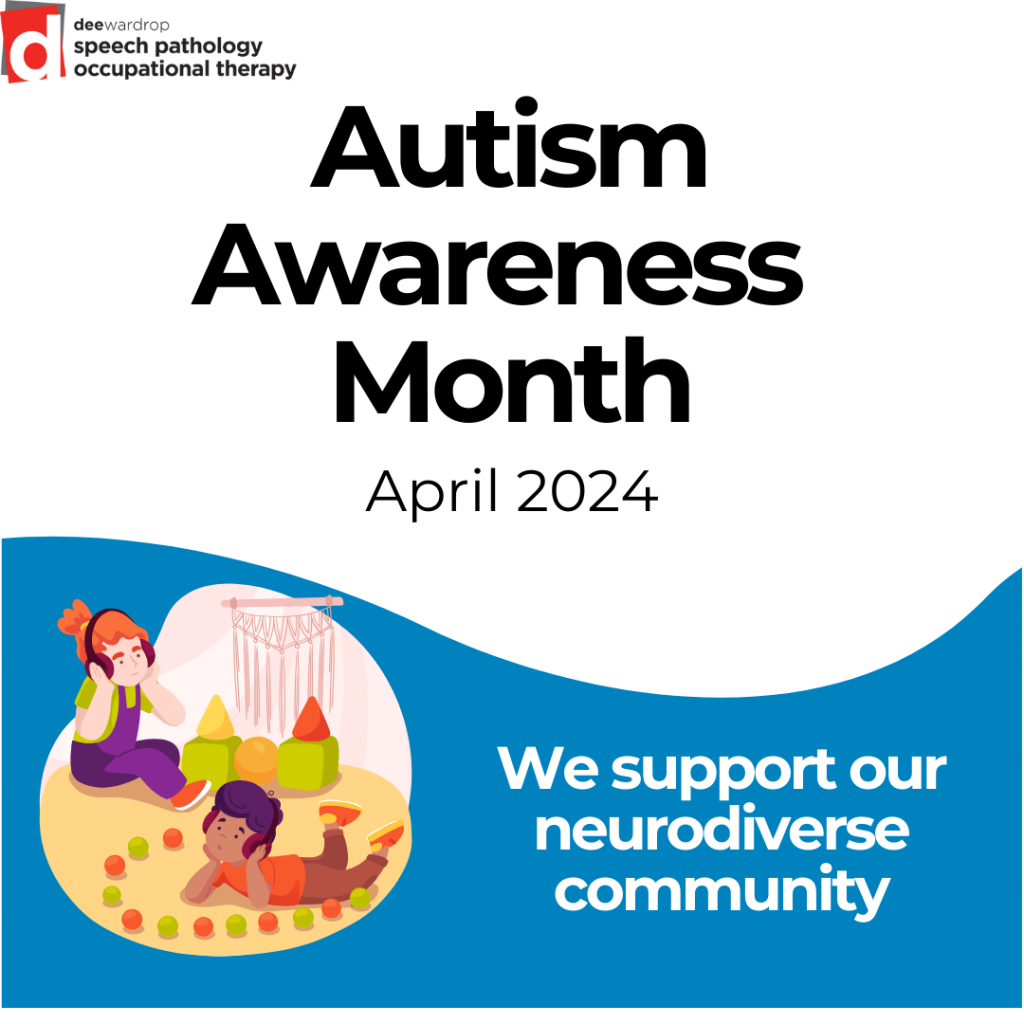April is Autism Acceptance Month. The aim of Autism Acceptance month is to raise awareness and promote inclusivity for autistic people, which can be fostered through community and social support. This will help celebrate autistic people’s strengths and enable them to achieve their full potential. Furthermore, in 2008, the United Nations General Assembly recognised the 2nd of April as World Autism Awareness Day, a day to acknowledge and celebrate the rights of the autism community.
What is Autism?
Being autistic means having different neurotype (brain wiring) to neurotypical people. This means that it is lifelong and affects how someone thinks, feels, interacts with others, and experiences their environment. It is estimated that 1 in 100 Australians are autistic. As being autistic is neurological in nature, it is often described as an ‘invisible’ or ‘hidden’ disability because there is no physical difference between a person with or without a disability.
Characteristics of Autism
Autism is considered a ‘spectrum,’ which means that there is no single way that an autistic person experiences the world, and each autistic individual will have a unique way of perceiving it. Although, the characteristics of autism are widely varied; some include:
Strengths
- Logical and visual learner/thinker, demonstrating perseverance, being detail-oriented, and having a memory for facts/data.
- Strong focus on specific interest areas.
- Enjoying and following routines/structures.
Challenges:
- Difficulty in communicating their needs and wants to others.
- Difficulty understanding sarcasm/jokes.
- Differences with social interaction and interpreting other people’s behaviour.
- Differences with processing sensory information.
- Possible difficulties with learning academic and functional skills.
How to support an autistic person:
- Avoid enforcing neurotypical expectations (e.g., encouraging eye contact or sitting still to focus) on autistic people, and educate others not to do the same. For autistic individuals, looking away may indicate thinking/processing, and rocking or fidgeting may indicate listening.
- Allow the mask to come off. Accept the need for autistic individuals to perform repetitive movements/sounds that help them self-soothe and allow them to fidget and move around without judgment.
- Communicate as clearly as possible. Avoid sarcasm, as some autistic individuals have difficulty interpreting contextual clues, vocal tone, and body language, which can lead to misinterpretation.
What Dee Wardrop Speech Pathology and Occupational Therapy Does:
Dee Wardrop Speech Pathology and Occupational Therapy tailors a a strength-based and neuroaffirming-based approach to support autistic people in achieving their full potential. We provide education to families and educators on neuroaffirming strategies to provide support in the home/classroom context.
Want more information?
Visit https://www.autismspectrum.org.au/waud to learn more about Autism and how you can support raise awareness and support the autistic community!
Looking for a fun Autism Awareness activity? Check out our Autism Awareness word search! http://April-Autism-Awareness-Month-Word-Search-1-1.pdf

